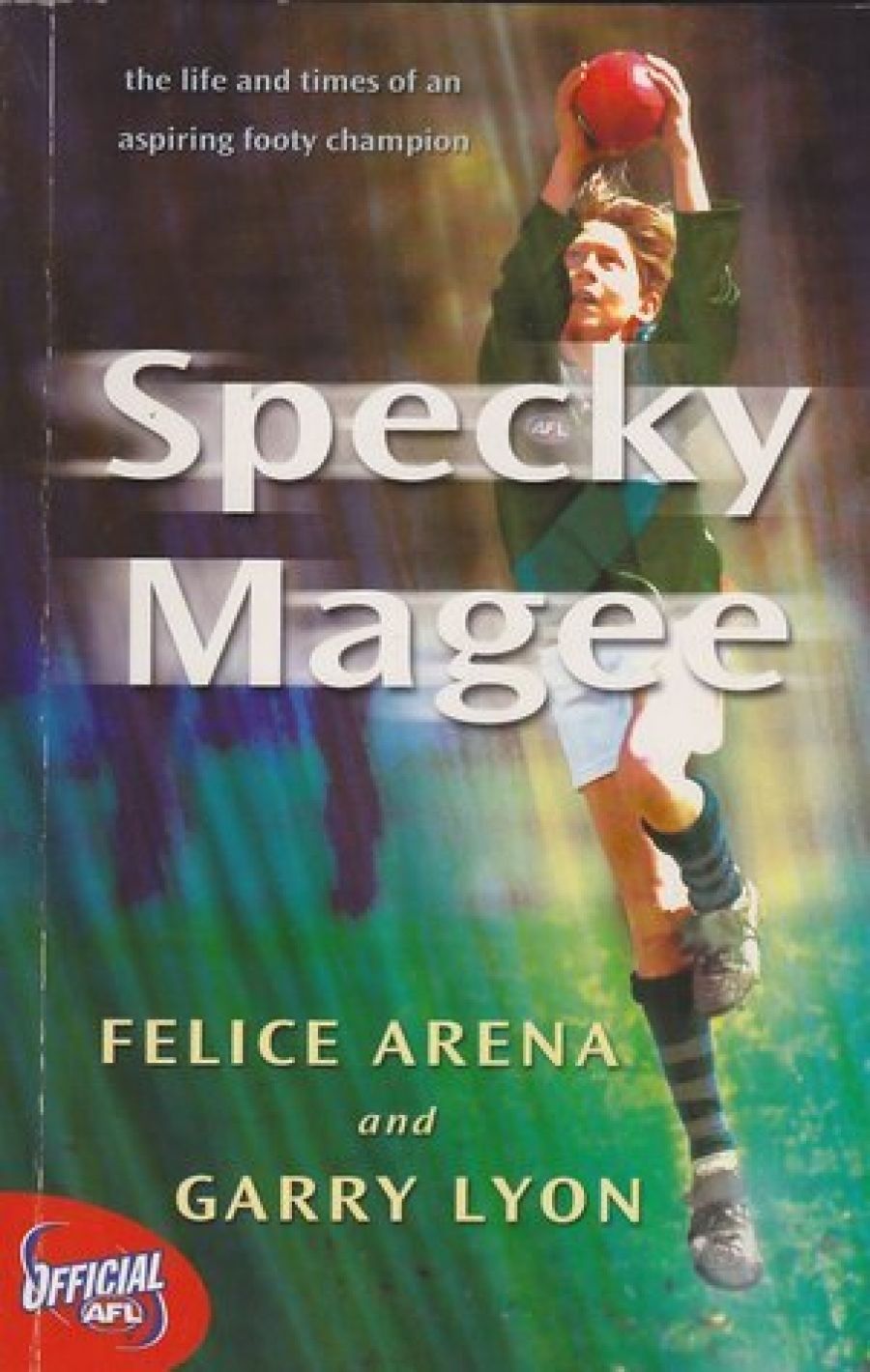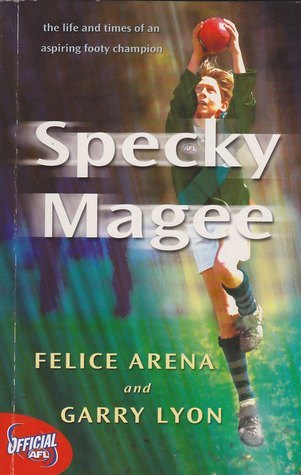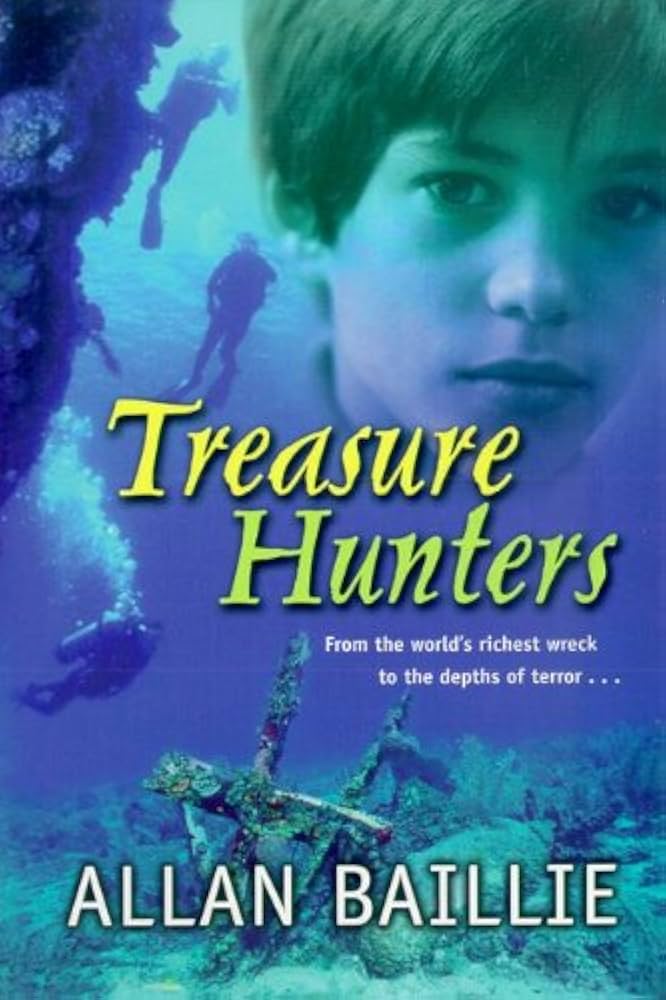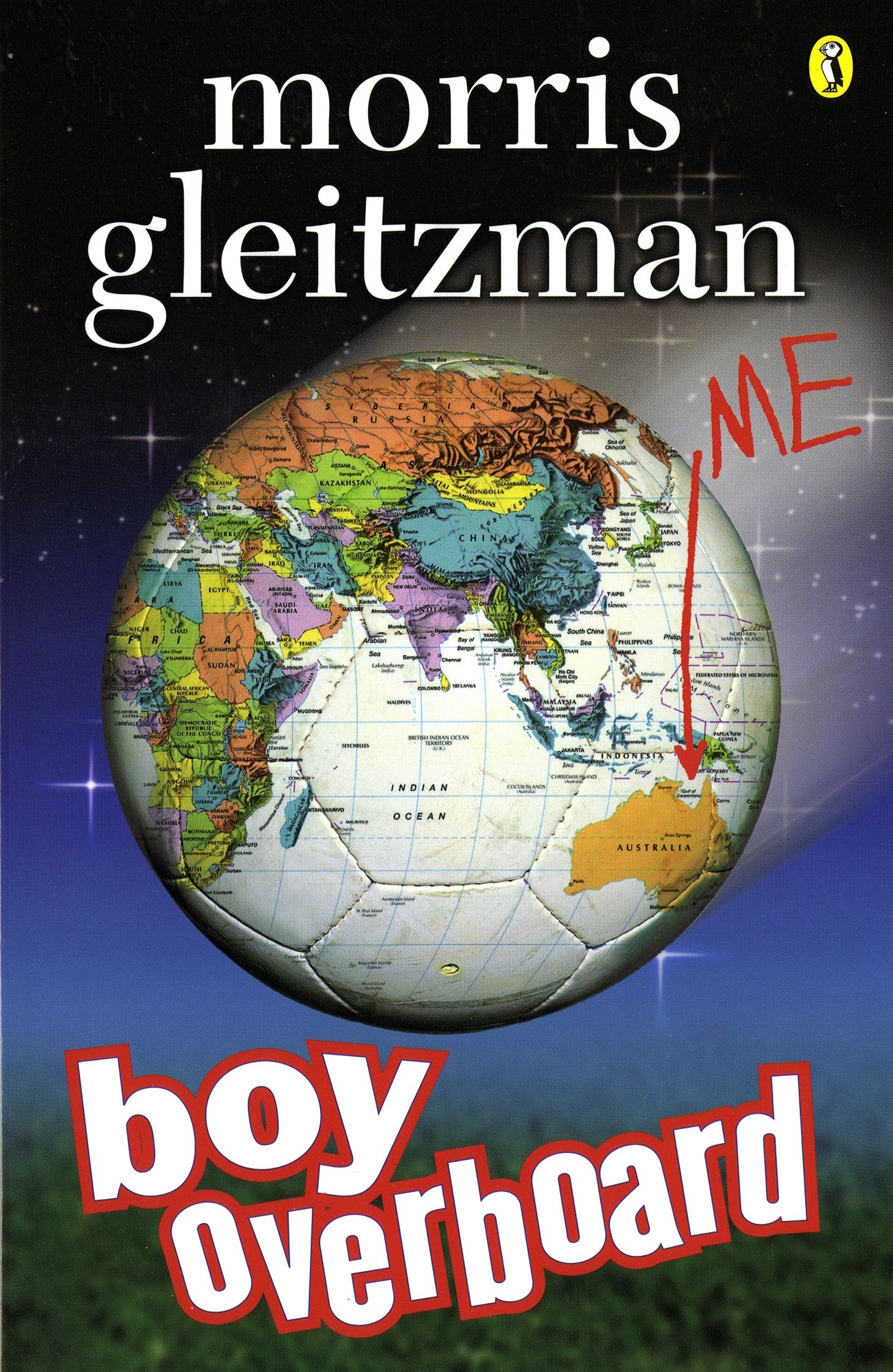
- Free Article: No
- Contents Category: Fiction
- Custom Article Title: Pam Macintryre review 6 Young Adult Fiction Books
- Review Article: Yes
- Article Title: Overboard
- Online Only: No
- Custom Highlight Text:
Jamal and his friends, in Boy Overboard, are soccer-mad but playing around the bomb craters is risky, not only because of landmines but because the government doesn’t approve of soccer – the government of Afghanistan, that is. Jamal and his family flee their homeland and take incredible risks in their attempt to get to Australia. Much of the story is familiar: illegal schools, the killing of women at a soccer ground, exploitative people smugglers and the Australian government’s ‘Pacific Solution’. ‘“There was an election in Australia,” he says. “The Australian government thought they’d get more votes by keeping you out.” His voice goes even quieter and sadder than before. “And they did.”’
- Book 1 Title: Specky Magee
- Book 1 Biblio: Angus & Robertson, $12.95 pb, 180pp
- Book 1 Cover Small (400 x 600):

- Book 1 Cover (800 x 1200):

- Book 2 Title: Treasure Hunters
- Book 2 Biblio: Puffin, $16.95 pb, 206pp
- Book 2 Cover Small (400 x 600):

- Book 2 Cover (800 x 1200):

- Book 3 Title: Boy Overboard
- Book 3 Biblio: Penguin, $17.95 pb, 281pp
- Book 3 Cover Small (400 x 600):

- Book 3 Cover (800 x 1200):

Morris Gleitzman’s story is sure to provoke reactions, not only predictable ones from those who support the government’s policy towards asylum seekers, but also from those who view it as ‘cashing in’ on the issue. However, at the recent Melbourne Writers’ Festival, many speakers lamented the lack of political writing from Australian storytellers. Obviously, they don’t read books for children. Gleitzman writes in the first person, so the reader identifies with Jamal and views his world from within. Jamal, however, is much like Gleitzman’s other naïve protagonists: is the author in danger of creating the assumption that all children think like white children? The book contains some extraordinary events; for example, the Rambo-style rescue of Jamal’s mother from the soccer ground (and the disturbing fate of the women who were not rescued). Is this an unconvincing narrative ploy? Implausibly heroic? Not as extreme as actual events?
Gleitzman’s characteristic humour is also present. I can almost hear the protests against being funny about such a serious situation. (Read Boori Monty Pryor if you want to see how laughter illuminates the darkness.) There is no happy resolution for Jamal and his family, who are still together at the book’s closure, but Jamal’s optimism and resilience remain strong. The fundamental role of literature is to question and provoke, and to give voice to those who may not otherwise be heard: Boy Overboard provides one valuable articulation.
Allan Baillie is unusual among Australian authors in consistently embracing global situations in his novels for young people. Treasure Hunters deals with Indonesia and an unnamed island where independence fighters are battling the military. This is the backdrop to the story of Pat, his father Matt, and friend Col, who are in search of a sunken Portuguese ship from the fifteenth century and its treasure. Pat struggles to connect with his father, who has ghosts that need exorcising, as does Col. Interspersed with this is the wonderfully evoked story of Diego, a boy on the Portuguese caravel seven centuries earlier. Baillie’s writing is always challenging in content and style, but the various elements don’t knit here, unlike in his superbly taut The Last Shot. The whole seems muddied, rather than crystallised, by the layers of past, present, personal and political.
Twenty-year-old university student Kit, in When You Wake and Find Me Gone, lives in a share house in Richmond and swaps her ‘girly’ and seemingly pointless literature course for a newly awakened and naïve enthusiasm for politics. However, a family tragedy hastens Kit’s knowledge of the brutal moral uncertainties of real world politics, and of her parents’ involvement in the IRA in Belfast. Politics, family and relationships are inextricably linked, and Kit is forced to make hard choices. This generous novel, peopled by strongly realised appealing and appalling individuals, also has a strong romantic element that will appeal to many readers. The cynic in me much preferred the political confrontations and the strongly evoked Irish scenery to the idea that love is the ultimate salve.
History, not politics, informs David Metzenthen’s picaresque Wildlight, based in the 1840s during the settlement of the west coast of Victoria. Dirk, a wild child, is found tied to a tree in the bush as a toddler and taken into virtual slavery by the Taylors, one of three struggling families in a small settlement, Tilmore. Dirk suffers years of physical mistreatment, with no human contact except with the defiant Bella. When he is about sixteen, he finds a cache of sovereigns hidden in the bush, discovers his parentage and escapes from the Taylors. Dirk begins a journey to Melbourne and beyond, meeting lighthouse builders, generous landowners, cruel squatters, violent sealers and the survivor of a shipwreck. He forms relationships with the various groups of Aborigines. It is both a physical journey, during which Dirk hopes to find a place where he will feel at home, but, ultimately, it is a spiritual journey: Dirk realises that it is not place but people who ground him.
The wild child idea is captivating, but perhaps hard to sustain throughout the book, and the narrative starts to lose momentum. Dirk cannot read or write, and struggles to express himself, having grown up with little social interaction. He was isolated from the other families in the settlement, kept in a shed with his dog, and so, when he escapes from the Taylors, much of the world is a complete puzzle to him. Dirk survives on instincts and feelings, but learns quickly. Despite, or because of, his harsh upbringing, Dirk has resilience and knows plenty about bushcraft. The circular nature of his journey leads not to an end but another beginning. The book’s message is that it is the young people who show decency and care, who stand against old prejudices, hatreds and bigotry, that will create an optimistic future for themselves and their land. Wildlight, though action-packed, inspires contemplation.
Specky Magee is a one-gulp book, to be read fast and easily. It is surprising that there are so few books about footy – of any code. This story’s focus is AFL, and the descriptions of strategies and motivations (thanks, I imagine, to Garry Lyon) are vivid, tense and cleverly integrated into the story. Specky is obsessed with footy and constantly practises in his backyard, kicking the ball onto the roof and timing his connection with it as it sails off the tiles. He is ‘aerial magic’, hence his nickname, but this a double-edged sword. Despite Specky’s enthusiasm and his skill, his Dad never comes to watch him: ‘he’s not into footy’. Such is the gulf between father and son that Specky decides his ‘real’ father must be a past champion. The search for this football-loving father gives narrative shape to the football episodes. It is a pity, then, that this book, whose heart is in the right place, lacks close attention to craft. There are too many clichés, too many adverbs, too much banal dialogue. Writing about football can be as lyrical as writing about any other subject – viz. Martin Flanagan. Why should footy fans get anything other than the best?
If Specky Magee is a one-sitting book, then Markus Zusak’s The Messenger sweeps you off your feet. Ed Kennedy is a nineteen-year-old, card-playing taxi driver, with a group of good mates who live on the dole or at home, with few ambitions. They share an easy camaraderie, even if it is superficial, at least at the beginning of the story. Ed’s routine existence in his squalid flat is upheaved when he inadvertently foils a bank robbery. After his brief moment of fame, Ed receives in the mail the ace of diamonds, then clubs, spades and, finally, hearts. His tasks begin. But what are they? How will he work out the clues, and what must he do? And who is devising these tasks?
Darkly comic, alternately tough, violent and tender, this novel trips across genres. It has fantasy elements, the twists and turns of detective fiction, the punch of realist fiction and the tension of a thriller, but it is the story that is essential. That is the only clue I will give: story is everything. The Messenger is comedic, romantic, thrilling, confronting, playful, deceptive, with rich moments such as Ed’s revival of an ailing church congregation using free beer and a jumping castle, and with piercing cameo characters. While it shares qualities with Nick Hornby’s How To Be Good and Iain Softley’s film K-Pax, it is cleverer, subtler and more profound than either, and, as a bonus, determinedly Australian. Deal yourself five of a kind.


Comments powered by CComment